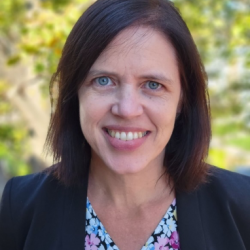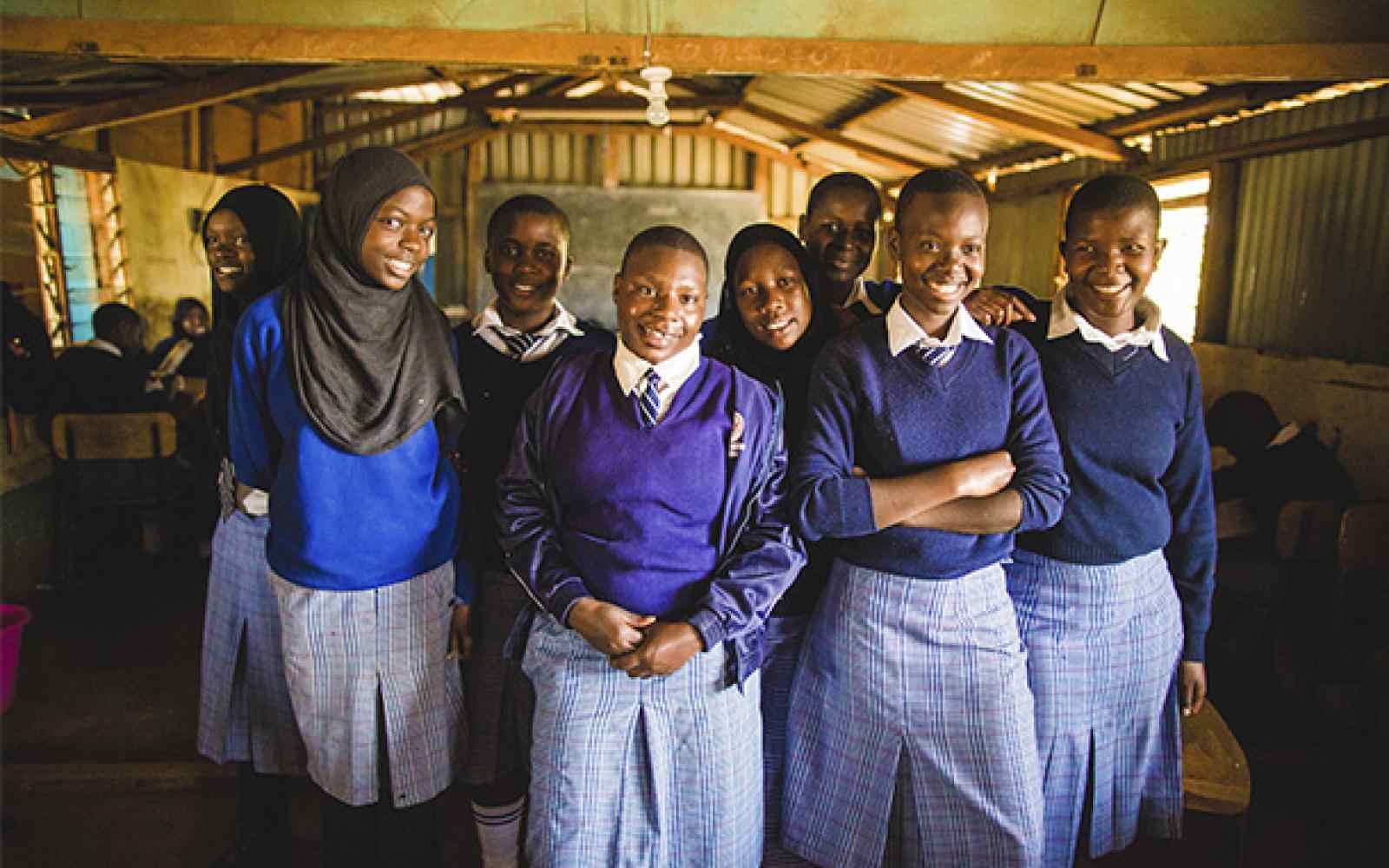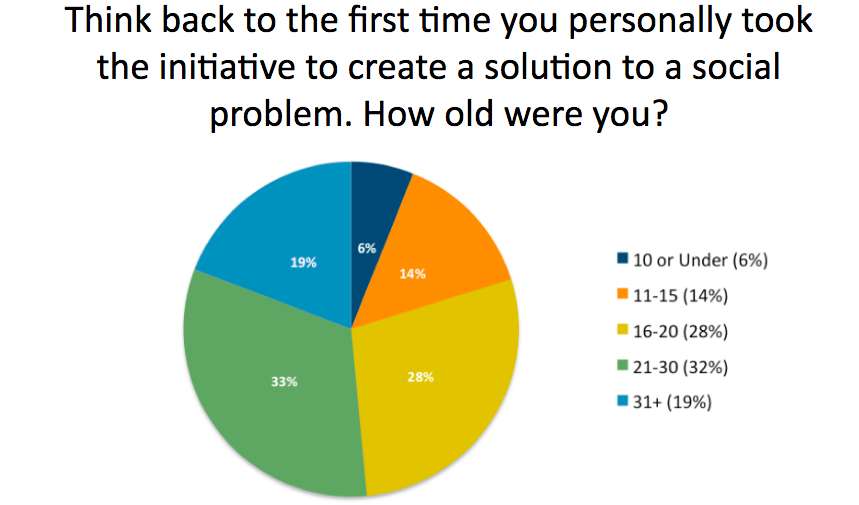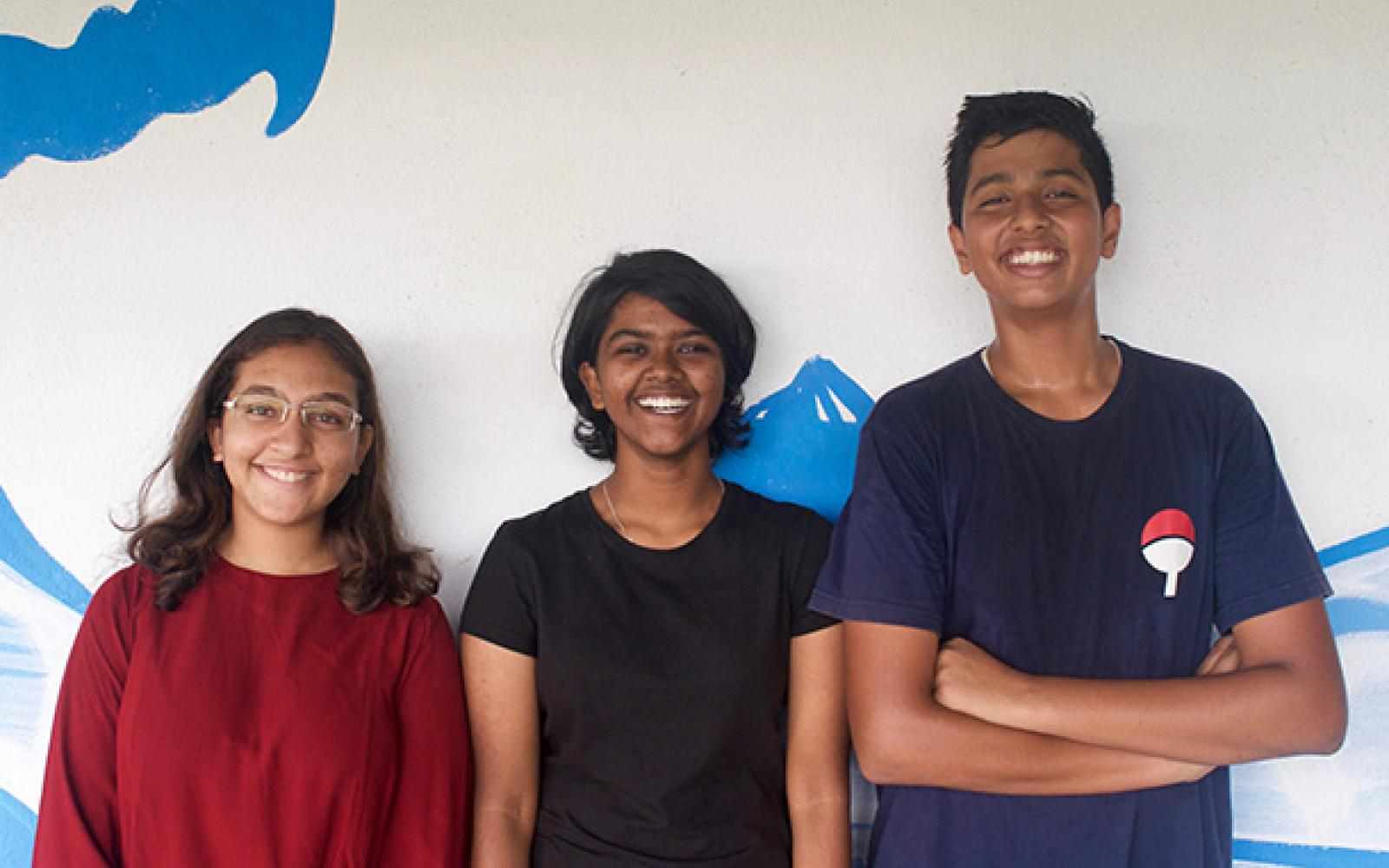
Claire Fallender
Claire has a deep sense of justice and fairness which has led her towards a career in building systems that support social entrepreneurs and young changemakers driving positive impact in the world.
Claire’s trajectory was highly influenced by supportive parents: A mathematician mother who challenged inflexible gender norms until she chose to pivot all her acumen into community leadership in public education and a business executive father whose work trips abroad taught Claire a sincere respect for a diversity of cultures not her own. They purposefully instilled in her a deep sense of fairness and a sense that she could do anything.
Claire’s changemaking journey started in high school where she became a leader in her school’s social change organization, overseeing a dozen student-led initiatives from housing to health to social justice. This work and early experiences volunteering with a community organization in Honduras exposed Claire first-hand to how well-intentioned people from outside a community could unintentionally do more harm than good.
In college Claire led a number of social justice initiatives. For instance, after witnessing labor violations so close to home as an intern with a leading garment worker’s union in New York, she launched the Students Against Sweatshops campaign at Yale, resulting in the administration approving a Code of Conduct to ensure the university’s ethical sourcing of its licensed goods. While studying in Chile, Claire was inspired by an Ashoka Fellow who demonstrated the kind of systems change impact only possible for someone who lives with the social problem and can skillfully put others into powerful roles. She graduated college and joined Ashoka’s team.
At Ashoka, Claire worked at every level of Venture, starting in D.C. and quickly moving to Brazil where she led the Venture/Fellowship program. She co-designed with a Fellow and launched Ashoka Brazil’s first youth changemaking program. Led by her passion for connecting the impact of social entrepreneurs and public policy change, she left Ashoka in 2004 to pursue a degree in Public Affairs at the Princeton School of Public and International Affairs where she eventually worked with UNICEF to develop the first inter-agency guidelines for supporting adolescent girls across 7 UN agencies.
After Princeton Claire joined the Oikos-Cooperation and Development, a social entrepreneur-led Portuguese organization in Mozambique, as a country leader in 2006. Her work catalyzed innovative approaches to support farmer and fishing cooperatives in their mitigation of the impacts of climate change and the HIV epidemic. Unsettled by the lack of support to Mozambican social entrepreneurs and changemakers, Claire returned to Ashoka to lead the Global Venture Program.
In the last decade, Claire has entreprenerd Ashoka’s LeadYoung initiative to help young people and now everyone to tell their Everyone a Changemaker story. She works across our global team of colleagues to develop tools and systems to align our global youth strategy and bring resources to support our core strategy. For example, she intrapreneured the four super key EACH dashboards.
In Claire’s free time, she loves to hike, make Halloween costumes and windchimes. She is grateful for the support of her husband and two young sons.
What Leading Social Entrepreneurs Are Telling Us

Ashoka Fellow Kritaya Sreesunpagit of Thailand started her first social change initiative in high school, convincing her peers to help a community build a new reservoir. Ashoka Fellow Christoph Schmitz of Germany started his first social business at 12, growing Christmas trees on a plot of his family farm to benefit the local orphanage.
After running one of the largest and most diverse studies of system changing entrepreneurs ever collected this past spring, Ashoka now has the data to show that Kritaya and Christoph are not anomalies — nearly half of Ashoka Fellows had their first changemaking experience before the age of 21.

“[Early leadership opportunities] really form who you are,” says Sreesunpagit. “What you are exposed to during those years will form how you lead your life afterwards.”
This finding lies at the heart of Ashoka’s efforts to support young changemaking, and is a powerful call for why leading young should serve as the guiding principle for anyone who influences the education and development of young people.
Changemaking Has Become The “New Game”
Imagine the following scenario: you grew up playing baseball. For years you practiced batting, throwing the ball, and catching with a glove. But you show up to the field one day and instead of baseball, everyone is playing soccer. The team dynamics are different. The skills needed are different. Even the pace of the game has quickened. If you try to play without have the skills or knowing the rules, you’ll probably be taken out of the game.
This is what a large portion of people around the world are feeling today: they’ve woken up and the game has changed. We no longer live in a world of repetition where you can learn a skill, trade, or profession and repeat it over and over. Instead, the rate of change and the extent of connectivity is increasing exponentially. According to a report published in 2017 by Dell Technologies, 85 percent of jobs in 2030 haven’t been invented yet.
Problematically, our institutions are still largely rooted in the past. Schools continue to focus on GPA and standardized test scores as the primary indicators of “success.” Schools and the wider education system need to find a new definition of success -- a definition that is centrally about empowering young people as empathic changemakers, who live for the common good. New policies, assessments, teacher training programs, and other systemic mechanisms will be vital, but just as important is the need to change mindsets.

What We’ve Learned: How to Nurture Changemaking
So how do we build a society that supports young people to practice changemaking? We can look to Ashoka Fellows’ childhood experiences to see how it’s done.
Create an environment that encourages questioning, debate, creativity, and positive action
Growing up, Fellows were encouraged to question the “status quo,” including existing societal norms and expectations, and to take creative action to solve problems around them. Usually, relatives or teachers gave the Fellow the support and encouragement they needed to take risks and start something they cared about. Fellows often mentioned their parent's own career or lived experience (sometimes as educators, psychologists, or as members of marginalized groups, like refugees) as influencing their focus on social impact and in developing a "can do" entrepreneurial mindset. Fellows also specifically mentioned their family's emotional support as a significant factor in their development as a changemaker.
Trust and encourage young people to take responsibility and leadership roles
Fellows were encouraged by their families and teachers to join other people’s initiatives at a young age. This gave them opportunities to explore their passions and to take responsibility and leadership roles. Contributing to other peoples’ initiatives gave them the opportunity to practice building teams and leading in a way that empowers others. Leadership could mean helping out with the family business, taking on responsibility with community and faith-based organizations, or being part of a leadership group at school.
Increase young people’s exposure to individuals, communities, cultures and ideas that are different from their own
The third most common experience that Fellows said was important for leading young was exposure to individuals, communities, cultures, and ideas that were very different from their own. Some of these experiences involved trips or families moving to a new country that turned the Fellow into an "outsider" in their new environment. Fellows explained that this experience of being an outsider enabled them to see social structures and problems more clearly, and to gain empathy for populations they previously had not encountered.
Ashoka Fellows Are Showing Us A World Where Everyone is Powerful
Ashoka Fellows have been leading this movement to empower people as changemakers for nearly 40 years. Based on our recent Fellows survey, we have learned critical insights for everyone around the world involved in supporting young people, which can easily be summed up as: young people need powerful learning experiences through which they become empathic, face up to the world’s problems, find their purpose, take the lead, and work with others in creatively solving those problems. Given the challenges we face locally and globally, we believe there is nothing more urgent for the future.
Note: A version of this article first appeared in the Social Innovations Journal on November 30th, 2018.